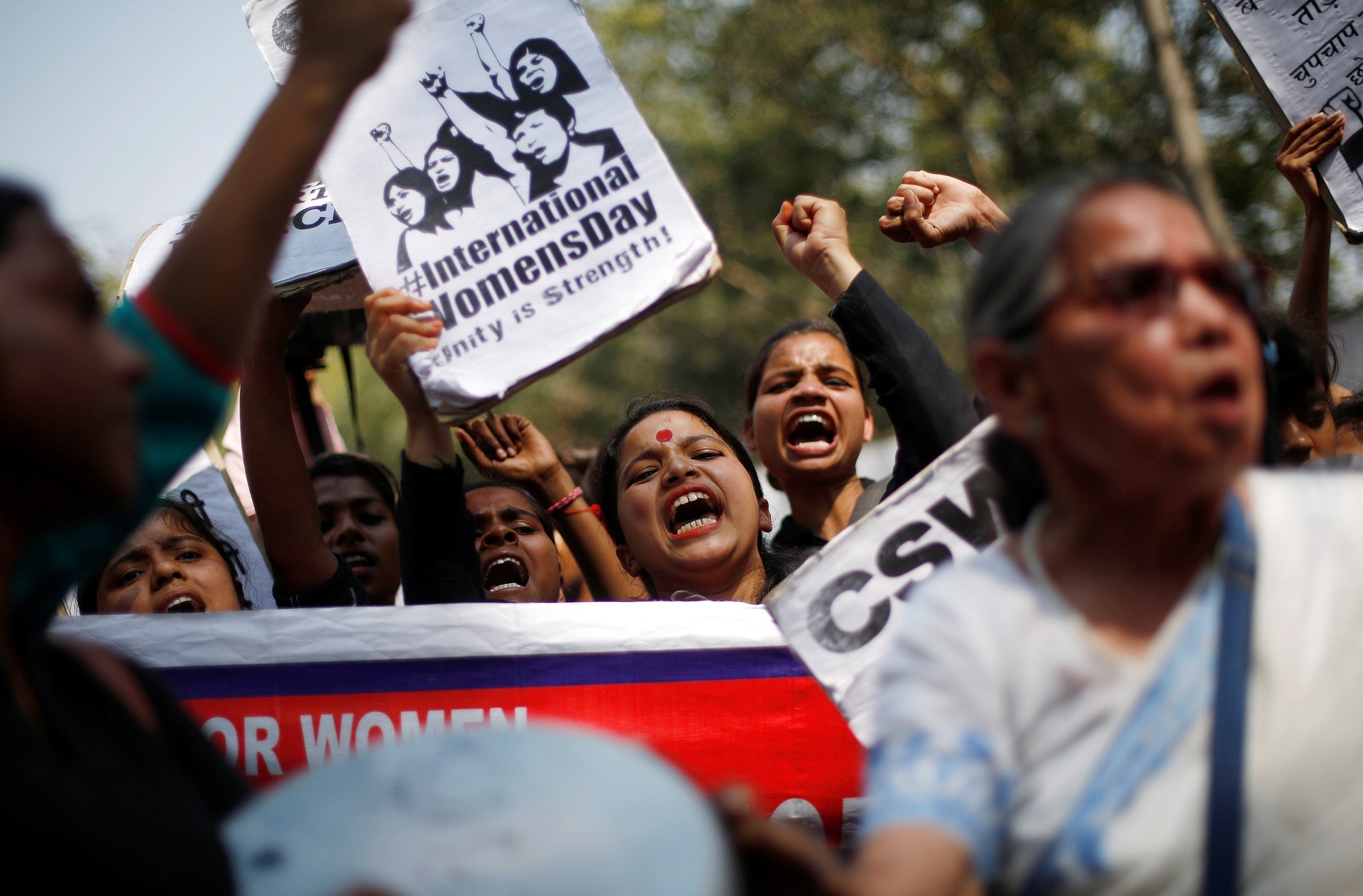Charted: What it means to be an Indian woman in 2019
In February, flight lieutenant Avani Chaturvedi created history by flying a MiG-21 bison solo. She was part of the first batch of woman pilots inducted into an Indian Air Force fighter squadron in 2016, the two others being flying officers Bhawana Kanth and Mohana Singh.


In February, flight lieutenant Avani Chaturvedi created history by flying a MiG-21 bison solo. She was part of the first batch of woman pilots inducted into an Indian Air Force fighter squadron in 2016, the two others being flying officers Bhawana Kanth and Mohana Singh.
However, feats like Chaturvedi’s aren’t what International Women’s Day, being celebrated today (March 08), is about usually. At least not going by the spate of business brunches and “girl power” merchandising that peaks around this day every year.
Yet, aside from the day’s glitz, Indian women are taking some substantial steps ahead.
For instance, in terms of financial inclusion. Over 76% of Indian women surveyed by online lending platform IndiaLends make their own investment decisions now. Yet, 59% of those who are self-employed still depend on their spouses for financial guidance.
In any case, IndiaLends isn’t alone in conducting such surveys. Here are some interesting findings from key studies conducted in connection with women and International Women’s Day:
Show me the money
The wage gap between men and women in India is staggering.
On average, men earn 19% more than women in India, according to the Monster Salary Index (MSI). The technology sector is the worst offender, with men earning 26% higher than women, followed by healthcare and caring services with 21% higher salaries for men.
No wonder more than 60% of the working women have suffered wage discrimination. The survey was conducted by job portal Monster among 3,000 working women and men in the country.
The reasons for the disparity can vary depending on whom you talk to but married women seem to be having the hardest time convincing their employers of their commitment, according to the survey.
Some of the top discriminatory perceptions that hold Indian women back workplace are:
What’s encouraging is that more than half of the men in the survey felt they can be effective advocates for women’s issues at the workplace. However, 44% of women felt men were gender-equality allies only in private.
Evidently, there is a disconnect between how men perceive issues plaguing women.
Transportation woes
For Indian women, even getting to work is a challenge as the infrastructure in most cities isn’t really woman-friendly.
Over 90% of women feel the country’s public transport is unsafe, according to a survey by Ola Mobility Institute, the ride-hailing unicorn’s public-research arm.
“Though gruesome incidents of violence against women have received attention in mainstream media, this data suggests that most women may face harassment such as verbal abuse, staring, groping, catcalls, whistling, molestation, which needs to be addressed to improve their perception of safety,” the survey says.
Ola Mobility Institute took into account views of 24,023 respondents across 11 cities such as Ahmedabad, Bengaluru, Bhubaneshwar, Chennai, Hyderabad, Indore, Jammu, Kochi, Mumbai, Mysuru, and New Delhi, for this survey. Women constituted 41% of the respondents.
Women have a particularly low preference for non-motorised transport, such as cycles, Ola Mobility’s survey showed. While around 30% of them owned bicycles, as compared to 40% men, only a third of them commute on them, according to the survey—inconvenience and safety concerns being the main hindrance.
What’s more? Even walking around the city is a challenge, given the encroached-upon, crowded, dark, high, and uneven footpaths, which affect females disproportionately.
“Piecemeal attempts focusing on street lighting alone are insufficient and there is an urgent need to improve walking and cycling infrastructure in Indian cities,” the survey says.
Take care
Women do, however, seem to be taking better care of themselves.
There was a 176% jump in the number of women consulting health professionals online in December 2018 as compared to the previous year, according to a survey by health tech startup Practo. The number of women using Practo to book physical appointments with doctors also increased by 31% during the same period.
The survey sampled 60 million women across India, primarily the registered users of Practo.
Women over 50 years of age are in fact the fastest growing user base for online consultation.
Diet and nutrition have emerged as the fastest growing healthcare concerns among women registered on Practo.
Relationship counseling, besides help related to thyroid issues, is increasingly being sought out by women.
Inquiries for dermatology were also high up on their list, especially in Bengaluru, Mumbai, and Delhi. The next phase of growth for online consultation is coming from places beyond metros. Cities such as Jaipur and Vishakhapatnam have already shown a huge uptick.